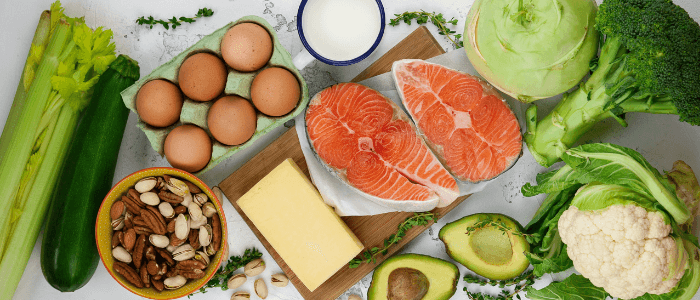In the world of wellness, there's nothing more confusing than diets and healthy eating regimens. Of course, we're told time and time again that the only thing that really works is proper nutrition and exercise (and patience of course). Yet, we are still willing to listen and try any new healthy eating regimen in the hopes that it is the one that will change everything. It usually doesn't turn out that way.
Certified nutritionists share that the best diet is the one that fits your unique needs, preferences, metabolism, and lifestyle. It's important to respect your bio-individuality and follow an approach that makes you feel your best.
That's why we consulted experts in the field of healthy eating and brought together the most popular healthy eating regimens.
Alkaline diet
The alkaline diet involves consuming alkaline foods to keep your body's pH levels between 7.35 and 7.45 (14.0 is pure alkaline, 7.0 is neutral, and 3.0 is acidic) while avoiding foods that become acidic once they break down. This healthy diet is said to improve memory and boost energy levels while preventing headaches and bloating.
When you start eating this healthy diet, you will probably need a little more time to adjust. Nutritionists share from their practice with clients that restrictions are often difficult to follow at first, as gluten, processed foods, alcohol and caffeine are completely excluded on the alkaline diet.
Only occasional meat consumption is allowed. However, if you already adhere to a plant-based diet, it may be an easier transition.

Healthy diet.
Going vegan? This plant-based diet has gained a lot of popularity over the past few years. It involves the exclusion of all animal products, which means dairy must also be stopped, not just meat and fish.
To ensure a healthy diet, vegans should consume meals that contain protein, carbohydrates, vegetables and healthy fats.
Nutritionists remind that this diet risks nutrient deficiencies if not done properly, including vitamin B12, vitamin D, iron, calcium and zinc.
It may be a good idea to supplement your diet with a multivitamin to make sure you're getting all the nutrition you need. Tofu oils and nuts are a must, and be sure to learn how to properly consume protein on this diet.

Intermittent Fasting (Intermittent Fasting)
Intermittent fasting has gained a lot of popularity in the last 2-3 years. The idea is that you spend long periods without food, yet you don't deprive yourself. This way your calorie intake is limited, yet you don't feel restricted. It may take a caloric deficit to lose weight, but that largely depends on your activity level as well.
Intermittent fasting can lead to weight loss, but also to increased energy levels and reduced stress. To do this successfully, you want to follow a certain healthy diet. Many people choose to fast for 16 hours followed by an eight-hour eating window.
The idea is that when your body is digesting food, you are not burning fat. To get to the fat burning window, one must give the body time to fully digest before eating their next meal.

Keto diet
The ketogenic diet is, to simplify, a diet that provides a reduction in carbohydrates to ensure that the body produces the glucose it needs to survive on its own and without resorting to outside help. Similarly, this scheme aims to ensure that all the fat contained in fat is consumed as energy.

Starting from this assumption, we move on to the meaning of the word "ketogenic". It is called ketogenic because in order to function, it must produce "ketones," bodies that are derived from lipids and that are normally produced by the body and then discarded. After keto, instead, ketones are produced in amounts much higher than the norm to begin the process of ketosis.
Ketosis is defined as the point at which the body no longer depends on carbohydrates to survive, but instead must burn fat to survive. When carbohydrate intake is reduced and consumption of good fats is increased, more ketones are produced, which are used for energy production and to allow the body to survive (and lose weight).






Comments